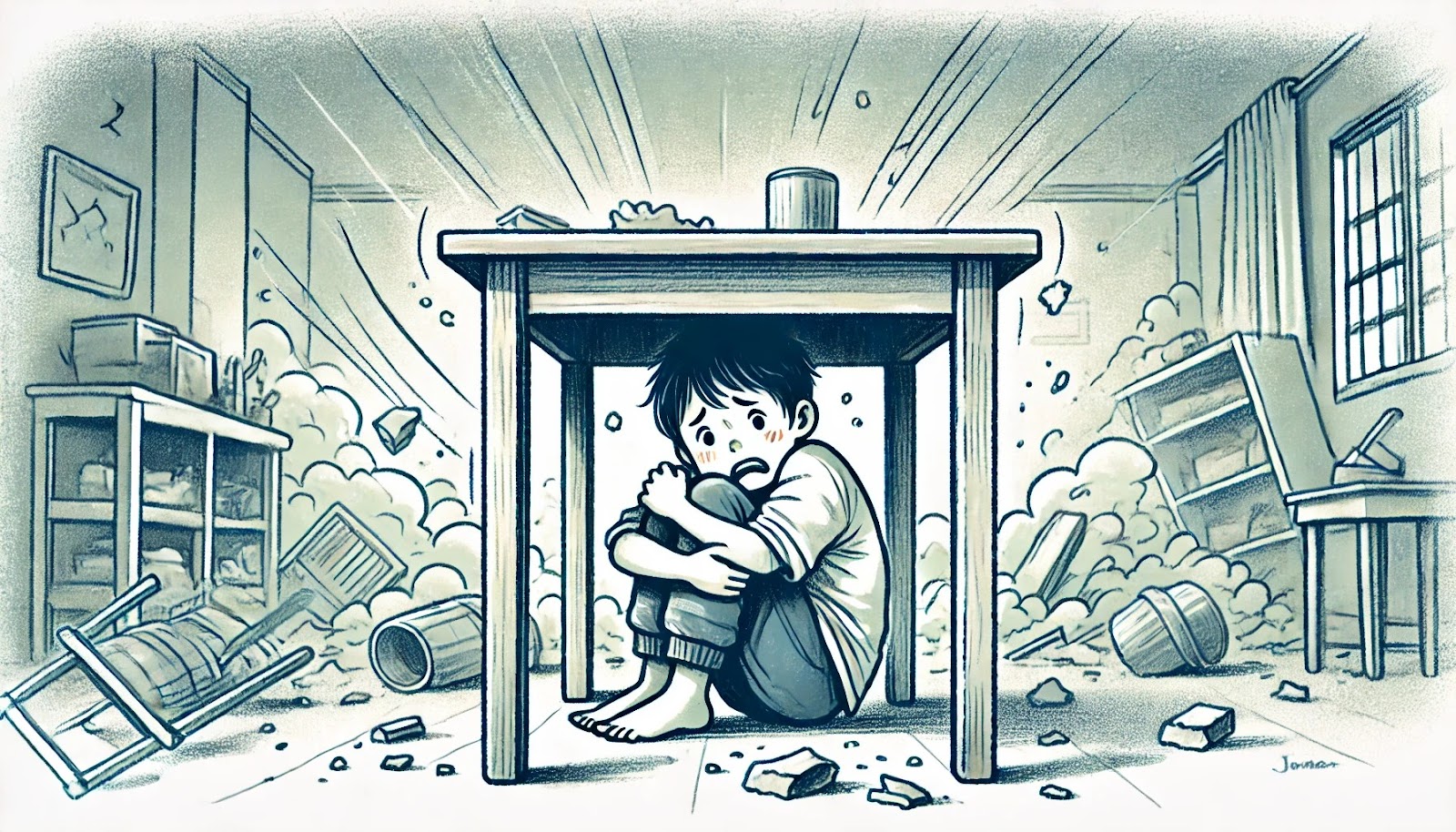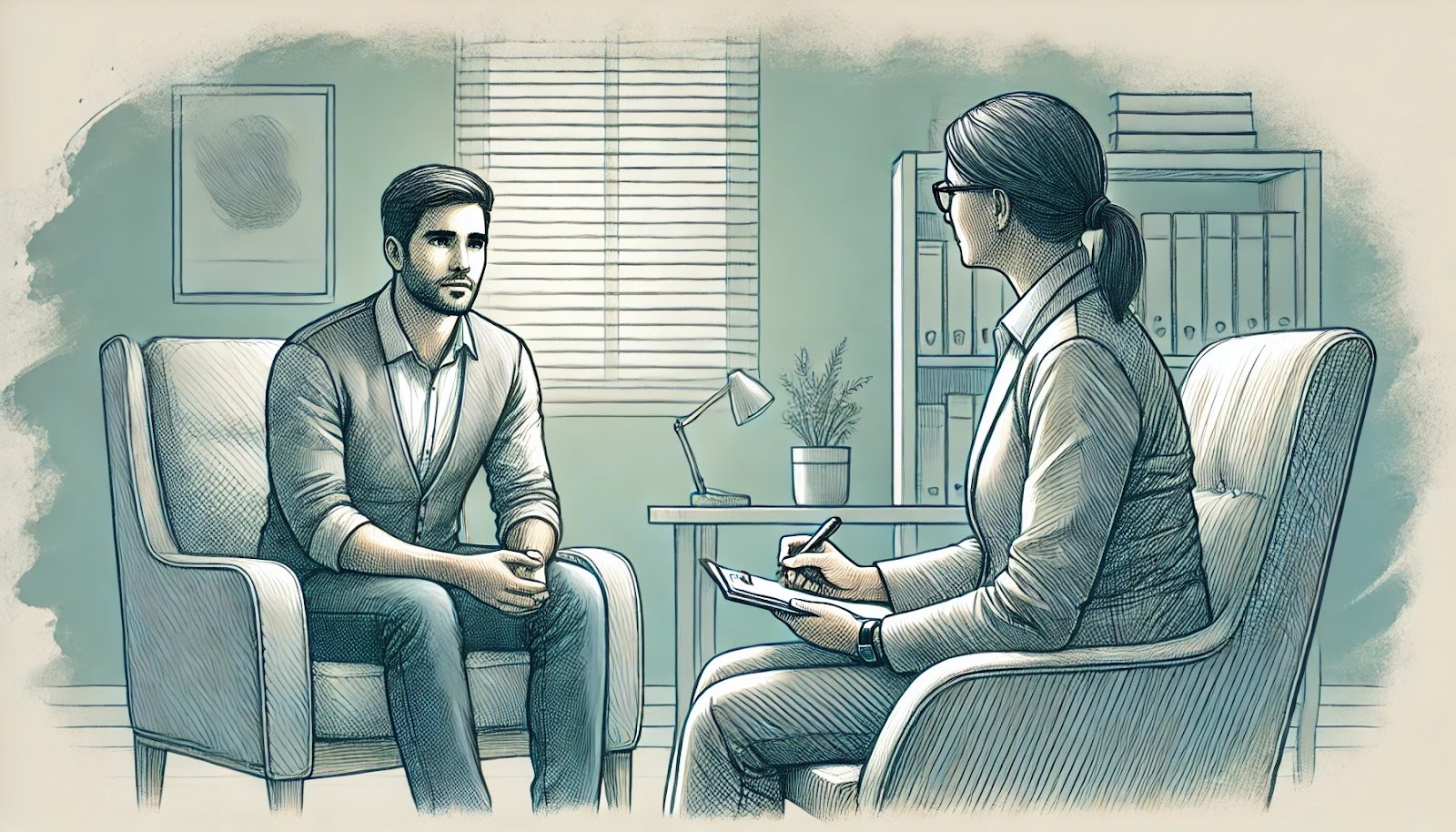Key Takeaways
- Trauma can significantly increase the risk of developing psychosis, although not everyone exposed to trauma will experience it.
- Psychosis symptoms include hallucinations, delusions, and disorganized thinking, which can severely impact daily functioning and quality of life.
- Trauma-induced psychosis is distinguished from other psychotic disorders by the presence of a clear traumatic trigger and often features hallucinations or delusions directly related to the traumatic experience.
- Effective treatments include therapy, medication, and strong support networks.
- A Mission for Michael (AMFM) offers comprehensive care for psychosis at multiple locations in California, Minnesota, and Virginia.
How Trauma Impacts Mental Health

Trauma is a response to events and experiences (e.g., accidents, natural disasters, or abuse) that a person finds highly stressful or disturbing. It can affect mental health by altering the way our brain processes stress and emotions.
Trauma can manifest in various ways, including flashbacks, nightmares, and severe anxiety. It can even affect one’s ability to trust others or form healthy relationships.
Explaining Psychosis
Psychosis is a condition that affects the way your brain processes information. It can cause you to lose touch with reality, often resulting in hallucinations or delusions. People experiencing psychosis may see, hear, or believe things that are not real.
While psychosis can be frightening, understand that it is a symptom, not a diagnosis. It can be a part of several mental health disorders, such as schizophrenia or bipolar disorder.
Trauma as a Psychosis Trigger
Trauma can change the way the brain functions, particularly in areas related to stress and emotion regulation. When someone experiences trauma, their brain can become hyperactive, making them more susceptible to mental health issues, including psychosis.
That said, not everyone who experiences trauma will develop psychosis. Several factors, such as genetics, environment, and individual resilience, play a role in determining one’s risk. However, trauma is a significant risk factor, especially if it occurs during critical developmental periods, like childhood.
Founded in 2010, A Mission For Michael (AMFM) offers specialized mental health care across California, Minnesota, and Virginia. Our accredited facilities provide residential and outpatient programs, utilizing evidence-based therapies such as CBT, DBT, and EMDR.
Our dedicated team of licensed professionals ensures every client receives the best care possible, supported by accreditation from The Joint Commission. We are committed to safety and personalized treatment plans.
Symptoms of Trauma-Induced Psychosis
Common Indicators
Individuals with trauma-induced psychosis may experience a range of symptoms. Hallucinations, where one sees or hears things that aren’t present, are common. These hallucinations can be auditory, visual, or even tactile.
Delusions are another key symptom. This involves having strong beliefs in things that are not true or based in reality.

For example, a person might believe they have special powers like flying or feel they are being prosecuted without evidence.
Disorganized thinking is also prevalent. This one makes it difficult for individuals to organize their thoughts logically, which can affect their speech and ability to communicate effectively.
Differences from Other Psychotic Disorders
While the symptoms of trauma-induced psychosis may overlap with other psychotic disorders, there are distinct differences. One major difference is in trauma-induced psychosis, symptoms typically follow a traumatic event.
Additionally, trauma-induced psychosis often involves a more direct connection between the content of hallucinations or delusions and the traumatic experience. For instance, a person who has experienced combat may have flashbacks or hallucinations related to their time in the military.
Understanding these differences aids in accurate diagnosis and treatment so that individuals receive the appropriate care customized to their specific experiences and needs.
When to Seek Help
If you or someone you know is experiencing symptoms like hallucinations, delusions, or disorganized thinking that interfere with daily functioning or relationships, seek professional help.
Early intervention can make a significant difference in managing symptoms and improving quality of life.
Treatment for Trauma and Psychosis
Therapeutic Approaches

Cognitive Behavioral Therapy (CBT) is an effective treatment for trauma-induced psychosis. It helps individuals understand and change patterns of thinking and behavior related to their symptoms.
Also, trauma-focused therapies, such as Eye Movement Desensitization and Reprocessing (EMDR), can also be beneficial. These therapies target the traumatic experiences that contribute to psychotic symptoms, helping individuals process and integrate these memories in a healthier way.
Group therapy and peer support groups provide additional opportunities for individuals to share their experiences and learn from others who have faced similar challenges.
Medications and Their Role
Medications are often prescribed to reduce the intensity and frequency of hallucinations and delusions, making it easier for individuals to engage in therapy and daily activities.
Work closely with a healthcare provider to find the right medication and dosage.
Importance of Support Networks
Family, friends, and mental health professionals can provide the encouragement and assistance needed to manage the challenges of recovery.
Support networks offer emotional support, practical help, and a sense of belonging. They can also play a key role in monitoring symptoms and ensuring that individuals follow their treatment plans.
Involving loved ones in the treatment process can enhance understanding and empathy, creating a more supportive environment for recovery.
Prevention and Management Strategies
Promoting Resilience
Resilience refers to the ability to bounce back from adversity and cope with stress effectively. Encouraging resilience can reduce the impact of traumatic experiences and promote mental well-being.
One way to boost resilience is by developing strong coping skills. This can include mindfulness practices, problem-solving strategies, and stress management techniques. Teaching these skills early in life equips individuals with the tools they need to handle challenging situations.
Additionally, have a supportive environment. A sense of belonging and community can provide emotional support and encouragement, enhancing resilience.
Early Intervention Tactics
Identifying symptoms early and seeking help promptly can prevent the condition from worsening and improve outcomes.
Educational programs that raise awareness about the signs and symptoms of psychosis can empower individuals and their families to seek help sooner. Schools, communities, and healthcare providers can play a role in disseminating this information and encouraging early intervention.
Also, reducing barriers to care, such as cost and stigma, ensures that individuals can receive the support they need when they need it.
Long-Term Management Planning
Long-term management involves creating a comprehensive treatment plan that addresses both the symptoms of psychosis and the underlying trauma. A multidisciplinary approach, involving therapists, psychiatrists, and support networks, can provide holistic care.
Additionally, having a crisis plan which outlines steps to take if symptoms re-emerge, ensures that individuals and their support networks are prepared to respond effectively.
Finding Healing at AMFM for Trauma-Psychosis

At A Mission for Michael, we understand the complex relationship between trauma and psychosis. Our comprehensive approach begins with a thorough assessment to identify the underlying causes of your symptoms.
Through our facilities in California, Virginia, and Washington, we provide personalized treatment plans that address both the psychotic symptoms and trauma at their core.
Our multidisciplinary team of professional healthcare providers utilizes evidence-based therapies like CBT and EMDR, alongside medication management when appropriate.
We also offer multiple levels of care from residential treatment to outpatient programs ensuring you receive the right support for your unique needs.
Don’t let psychosis continue to disrupt your life. Reach out to AMFM today at 866-478-4383 for a free, confidential assessment and take the first step toward healing.
Frequently Asked Questions (FAQ)
What is the relationship between childhood trauma and psychosis?
Childhood trauma, such as abuse or neglect, can increase the risk of developing psychosis later in life. Traumatic experiences during critical developmental periods can alter brain function and increase vulnerability to mental health issues.
Can addressing trauma reduce psychotic symptoms?
Yes, addressing trauma through therapy and support can reduce psychotic symptoms. Trauma-focused therapies help individuals process and integrate traumatic memories, reducing their impact on mental health.
How can families support individuals with trauma-induced psychosis?
Families can support individuals with trauma-induced psychosis by providing emotional support, understanding, and encouragement. This can make a significant difference in recovery.
Do all individuals exposed to trauma develop psychosis?
No, not all individuals exposed to trauma develop psychosis. While trauma is a significant risk factor, it is not the sole determinant. Factors such as genetics, environment, and resilience, influence the risk of developing psychosis.
What types of treatment does AMFM offer for trauma-induced psychosis?
AMFM offers comprehensive care that begins with an in-depth assessment to understand the root cause of psychotic symptoms. Our treatment plan typically includes therapy, medication management, and holistic approaches customized to each individual’s needs.












